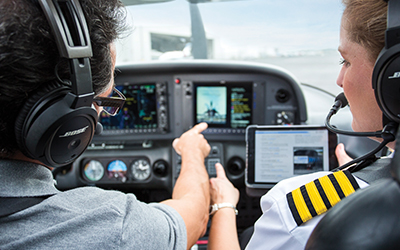Image Credit:
Cirrus Aircraft

Instructional flying lays the foundation for training and developing competent pilots in the Aviation industry and Aircraft management. It ensures that the pilots are well-prepared for complex challenges and can handle the flying demands of an aircraft with maximum safety. Let’s learn why instructional flying is essential to the aviation industry:
Through instructional flying, pilots can learn the necessary skills and knowledge to operate aircraft efficiently. Through training programs and guided flying, pilots learn techniques to handle critical situations, routine operations, and emergency situations. This helps maximize aircraft and passenger safety and reduce the risk of accidents.
Pilots can get hands-on experience under the guidance of experienced instructors, which develops a deeper understanding of aircraft systems, flight protocols, and navigation techniques. Aircraft management and airplane rental programs make the practical flying experience invaluable for dedicated pilots.
The aviation industry heavily focuses on maintaining safety standards, which is why instructional flying is necessary to meet protocols. Pilots must adhere to the safety standards set by aviation authorities to be eligible for licenses and certifications.
Instructional flying is more of an aviation protocol, and training schools and instructors are integral to this process as they provide essential services. Aircraft management can also rent a plane to maintain smooth training operations and contribute to skill development programs.
The aviation industry benefits from technology and adapts to newer ways to integrate it into their training programs. Sometimes, Airplane rental has adapted to advanced technology, and that’s where your instructional training programs guide you to deliver efficient performance using avionics and automated systems.
Through extensive and continuous learning programs, pilots develop skills throughout their careers and invest in courses that enhance their expertise, ensuring their confidence and competence in the field.
With the guidance of instructional flying experienced instructors, pilots can develop the necessary skills by leveraging technology and adapting to newer systems such as avionics and automation. It teaches safe techniques, crisis management, aircraft management, and regulatory compliance.
If you are looking to rent a plane or pursue a career in aviation, instructional flying can help you learn effective aircraft management.